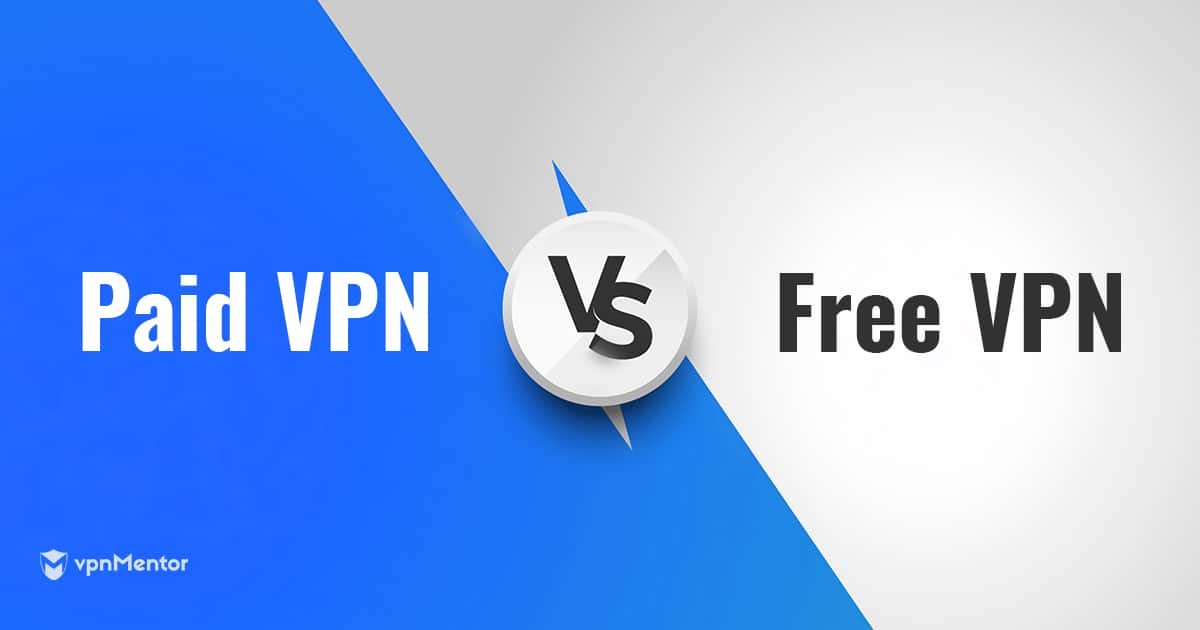In today’s digital age, online privacy is crucial. VPNs help protect your internet activity.
But, should you choose a free VPN or a paid one? Comparing free and paid VPNs helps you understand their differences. Free VPNs might seem appealing because they cost nothing. Yet, they often come with limitations. Paid VPNs usually offer better security and features but require a subscription.
This blog will explore the pros and cons of both options. You’ll learn about their performance, security, and value for money. By the end, you’ll know which type suits your needs best. Let’s dive into the world of VPNs and make an informed choice.
Introduction To Vpns
In today’s digital age, internet privacy and security are vital. A Virtual Private Network (VPN) helps protect your online activities. Understanding the basics of VPNs can help you choose the right one.
What Is A Vpn?
A VPN is a tool that encrypts your internet connection. It hides your IP address and makes your online actions private. This means your data is secure from hackers and surveillance. You can browse the web without worrying about your privacy.
Importance Of Vpns
VPNs are crucial for maintaining online privacy. They protect your data on public Wi-Fi networks. Without a VPN, your personal information can be at risk. VPNs also allow you to access geo-restricted content. This means you can watch shows or visit websites that are blocked in your country.
Using a VPN can also prevent bandwidth throttling. Internet Service Providers (ISPs) sometimes slow down your connection based on your activities. A VPN hides your browsing, preventing ISPs from throttling your speed. This ensures a smooth and fast internet experience.
Free Vpns
Comparing free and paid VPNs, free options often offer limited features and slower speeds. Paid VPNs provide better security, more features, and faster connections. Choosing depends on your needs and budget.
Free VPNs are popular among users looking for cost-effective online security. They offer basic features without any charges. Many users start with free VPNs to explore their benefits. But is a free VPN really worth it? Let’s dive into the pros and cons.Pros Of Free Vpns
Free VPNs are cost-effective. You don’t need to pay a subscription fee. This makes them accessible to everyone. They are easy to use. Most free VPNs have simple interfaces. Users can connect with just a few clicks. Free VPNs offer basic privacy. They can hide your IP address. This helps you browse the internet more securely. Free VPNs can bypass basic geo-restrictions. You can access content not available in your country.Cons Of Free Vpns
Free VPNs often have limited server options. This can lead to slow connection speeds. It can also cause frequent disconnections. They may have data limits. Many free VPNs restrict your data usage. This can be frustrating for heavy internet users. Free VPNs often show ads. These ads can be annoying. They can also slow down your browsing experience. Free VPNs might not offer strong security. Some free VPNs log your data. This can compromise your privacy. Free VPNs usually lack customer support. If you face issues, you might not get help. This can be a problem for non-tech-savvy users. “`Paid Vpns
When considering VPNs, paid options offer more reliability and features. They often provide better performance and customer support. Paid VPNs usually have more servers, which means faster and more stable connections. They also tend to offer advanced security features that are not available in free versions.
Pros Of Paid Vpns
Paid VPNs offer several advantages. First, they provide faster speeds. This is because they have more servers and less congestion. Second, they offer better security. Paid VPNs often include advanced encryption and extra security features. Third, they have better customer support. If you face any issues, you can get help quickly.
Another benefit is unlimited bandwidth. Paid VPNs do not restrict your data usage. This is important if you stream videos or download files. Paid VPNs also offer access to more regions. This allows you to bypass geo-restrictions and access content from different countries.
Cons Of Paid Vpns
Despite the advantages, paid VPNs have some downsides. The most obvious is cost. You need to pay a subscription fee. This can be monthly or yearly. Another drawback is the potential for over-reliance. Some users may depend too much on the VPN for security. This can lead to neglecting other important security measures.
Additionally, not all paid VPNs are equal. Some may have hidden fees or poor customer service. It is important to research and choose a reputable provider. Lastly, using a VPN can sometimes slow down your internet connection. Although paid VPNs are faster, there can still be a slight reduction in speed.

Credit: www.vpnunlimited.com
Security Features
When choosing a VPN, security features are crucial. Both free and paid VPNs offer different levels of security. This section will explore the key aspects of security in VPN services.
Encryption Standards
Encryption is the backbone of VPN security. Free VPNs often use basic encryption methods. These methods might not be secure enough for sensitive data. Paid VPNs, on the other hand, usually offer advanced encryption standards. They use protocols like AES-256. This ensures your data remains safe from hackers.
Server Locations
Server locations play a vital role in security. Free VPNs tend to have fewer server locations. This can lead to crowded servers and slower speeds. Paid VPNs offer a wider range of server locations. More servers mean better security and faster connections. A broad network of servers also helps in bypassing geo-restrictions effectively.
Privacy And Data Handling
Understanding the differences between free and paid VPNs is crucial for maintaining your online privacy. One of the main concerns is how these services handle your data. Let’s dive deeper into the specifics.
Data Logging Policies
Free VPNs often have less strict data logging policies. They may store your browsing history, IP address, and other personal information. This data can be sold to third parties for profit.
Paid VPNs, on the other hand, usually have clear no-logs policies. They do not track or store your online activities. This ensures a higher level of privacy and security.
Here’s a quick comparison:
| Feature | Free VPN | Paid VPN |
|---|---|---|
| Data Logging | Often logs data | No-logs policy |
| Data Sales | May sell data | Does not sell data |
User Anonymity
Free VPNs might compromise your anonymity. They can track your online behavior and expose your identity. Some free services even use weak encryption, making your data vulnerable.
Paid VPNs offer better user anonymity. They employ strong encryption protocols. This makes it harder for anyone to intercept your data. You stay anonymous and secure.
Here are some key points to consider:
- Encryption Strength: Paid VPNs use advanced encryption.
- Tracking: Free VPNs may track your activities.
- Data Protection: Paid services ensure your data is safe.

Credit: www.perimeter81.com
Performance And Reliability
Choosing between a free VPN and a paid VPN can be tricky. Performance and reliability are crucial factors. They determine how well your VPN will serve you.
Connection Speed
Connection speed is a major consideration. Free VPNs often have slower speeds. This is because they have limited servers. Many users share these servers. Paid VPNs, on the other hand, usually offer faster speeds. They have a larger number of servers. They also have fewer users per server.
| Feature | Free VPN | Paid VPN |
|---|---|---|
| Average Speed | Slow to Moderate | Fast |
| Server Availability | Limited | Extensive |
Uptime And Stability
Uptime and stability are also important. Free VPNs often have lower uptime. They may also have more connection drops. Paid VPNs usually offer better stability. They have stronger infrastructure. This ensures consistent and reliable connections.
- Free VPNs often experience downtime.
- Paid VPNs have higher uptime guarantees.
- Paid VPNs offer 24/7 customer support.
Free VPNs may save you money. But, they can cost you in performance. Paid VPNs provide better speed and stability. This makes them a more reliable choice.
Cost Vs Value
When choosing between free and paid VPNs, the cost is a significant factor. But understanding the value each option brings is crucial. Let’s break down the cost versus value in detail.
Budget Considerations
Free VPNs are attractive for budget-conscious users. They offer basic services without any fees. This can be a good start for those new to VPNs or for occasional users. However, they come with limitations.
- Limited bandwidth
- Restricted server locations
- Slower speeds
Paid VPNs, on the other hand, require a subscription fee. But they offer more features and better performance. The cost can range from a few dollars a month to higher premiums for advanced services. Consider your usage and needs when evaluating the budget.
Long-term Benefits
Paid VPNs provide numerous long-term benefits. They ensure better security and privacy. You get access to more servers and faster connections. Many paid VPNs also offer customer support, ensuring you get help when needed.
| Feature | Free VPN | Paid VPN |
|---|---|---|
| Bandwidth | Limited | Unlimited |
| Server Locations | Few | Many |
| Connection Speed | Slow | Fast |
| Customer Support | None | 24/7 |
Investing in a paid VPN can be more cost-effective in the long run. It provides better performance and peace of mind. If online privacy and security are priorities, a paid VPN is worth considering. Balancing cost and value is key to making the right choice.
Making The Right Choice
Choosing between free and paid VPNs can impact your online security. Free VPNs often lack features and speed. Paid VPNs provide better performance and protection.
Choosing between free and paid VPNs can be tricky. Each option has its benefits and drawbacks. It is essential to understand your needs to make the best choice. Below, we will explore two key factors to help you decide.Assessing Your Needs
Firstly, think about what you need from a VPN. Do you need it for streaming? Or for browsing securely? Free VPNs often have limited features. They may not support streaming or fast speeds. Paid VPNs, on the other hand, offer better performance. They provide faster speeds and more features. Consider your privacy needs. Free VPNs sometimes log your data. Paid VPNs usually offer a no-log policy. This means they do not keep records of your activity. If privacy is important, a paid VPN might be better.Final Recommendations
If you need basic browsing protection, a free VPN could be enough. But if you need more features, consider a paid VPN. Paid VPNs offer better security and performance. They are suitable for streaming and downloading. Assess your needs and choose accordingly. “`Credit: surfshark.com
Frequently Asked Questions
What Is The Difference Between Free And Paid Vpns?
Free VPNs often have limited features, slower speeds, and ads. Paid VPNs offer better security, faster speeds, and more features.
Are Free Vpns Safe To Use?
Many free VPNs can be unsafe as they may log data, show ads, or sell your information. Paid VPNs provide better privacy.
Why Should I Consider A Paid Vpn?
Paid VPNs offer enhanced security, faster speeds, better customer support, and more features compared to free VPNs.
Do Free Vpns Have Data Limits?
Yes, most free VPNs have data limits, restricting the amount of data you can use each month.
Conclusion
Choosing between free and paid VPNs depends on your needs. Free VPNs offer basic protection but often lack speed and reliability. Paid VPNs provide better security, faster connections, and more features. Consider your priorities, like privacy and performance. Think about your budget too.
Evaluate both options carefully. Make an informed decision. Your online safety matters.



Leave a Reply